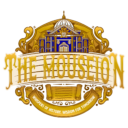Sparta, a city-state in ancient Greece, is often remembered for its unique and disciplined way of life, a society that was singular in its dedication to military prowess and communal strength. The people of Sparta, known as Spartans, were molded by a culture that valued austerity, discipline, and an unwavering commitment to the state. From birth, Spartans were immersed in a way of life that prioritized the collective over the individual, creating a society that was as formidable as it was unique.
The Spartan system was designed to create warriors, and it started at birth. Spartan infants were examined by elders; those deemed weak or unhealthy were left to die, a practice that, while harsh, reflected the city-state’s emphasis on strength and resilience. Boys who passed this initial test were introduced to the agoge, the rigorous state-sponsored education and training program, at the age of seven. The agoge was more than just a school; it was a crucible in which boys were transformed into soldiers. They were taught to endure pain, embrace hardship, and put the needs of Sparta above their own.
Spartan women, though not subjected to the agoge, were also raised with a strong sense of duty to the state. Unlike their counterparts in other Greek city-states, Spartan women enjoyed significant freedoms and responsibilities. They were expected to maintain physical fitness, manage their households, and raise strong children who could serve Sparta. This focus on physical and mental strength in both men and women contributed to a society that was uniquely prepared for war.
Sparta’s political system was as distinctive as its social structure. It was governed by a mixed constitution that combined elements of monarchy, oligarchy, and democracy. The city-state was ruled by two hereditary kings who shared power, particularly in military and religious matters. These kings were supported by the Gerousia, a council of elders responsible for making laws and advising the kings. The Ephors, five elected officials, wielded significant power, overseeing the education system, enforcing laws, and even holding the authority to challenge the kings. This complex system of checks and balances ensured that no single individual or group could dominate Spartan politics.
Central to the Spartan way of life was the helot system. Helots were essentially state-owned serfs, primarily drawn from the conquered population of Messenia. They worked the land and provided the food that sustained the Spartan economy, allowing the citizens to focus exclusively on military training. The helot population was far larger than that of the Spartan citizens, which made them a constant source of concern. To maintain control, the Spartans implemented the Krypteia, a secret police force that regularly purged the helot population to prevent rebellion. The harsh treatment of the helots was a dark but necessary aspect of Spartan society, ensuring that the military elite could focus on defending the state.
Sparta’s military reputation was unparalleled in the ancient world. Spartan hoplites, heavily armed foot soldiers, were known for their discipline and effectiveness in battle. The phalanx formation, a tightly packed line of soldiers with interlocking shields and spears, was the cornerstone of Spartan military strategy. This formation, coupled with the rigorous training of the agoge, made the Spartan army one of the most feared fighting forces in Greece. The Battle of Thermopylae in 480 BCE, where King Leonidas and his 300 Spartans made a legendary stand against the Persian army, remains one of the most celebrated examples of Spartan valor and sacrifice.
However, the very system that made Sparta strong also contributed to its decline. Sparta’s rigid social structure and emphasis on military training left little room for economic and cultural development. While other Greek city-states, like Athens, thrived in areas such as philosophy, art, and trade, Sparta remained focused almost exclusively on war. This narrow focus eventually became a weakness. As other city-states adapted to changing circumstances, Sparta struggled to maintain its dominance. The Battle of Leuctra in 371 BCE, where the Thebans decisively defeated the Spartan army, marked the beginning of the end for Sparta’s supremacy.
Despite its decline, the legacy of Sparta endures. The Spartan ideals of discipline, sacrifice, and communal responsibility continue to inspire admiration. The word “Spartan” has become synonymous with simplicity, austerity, and rigorous self-discipline. While Sparta may have ultimately fallen from power, its influence on history and culture remains profound. The people of Sparta, shaped by their unique society, left behind a legacy of courage and strength that continues to captivate our imaginations to this day.
4o

